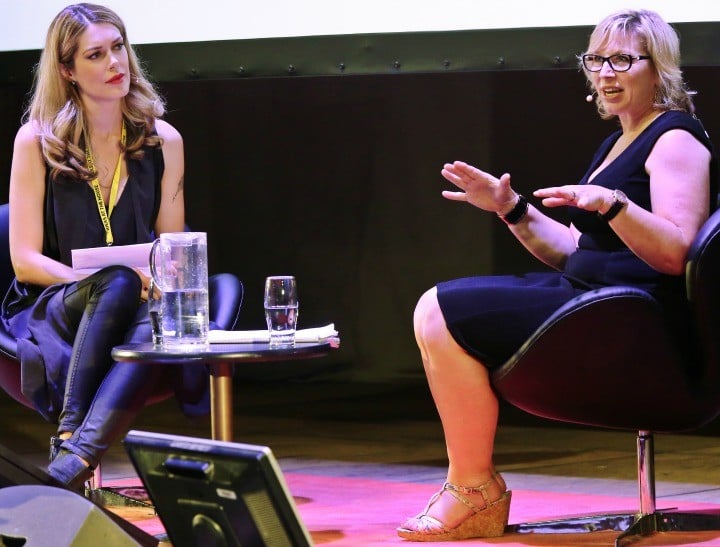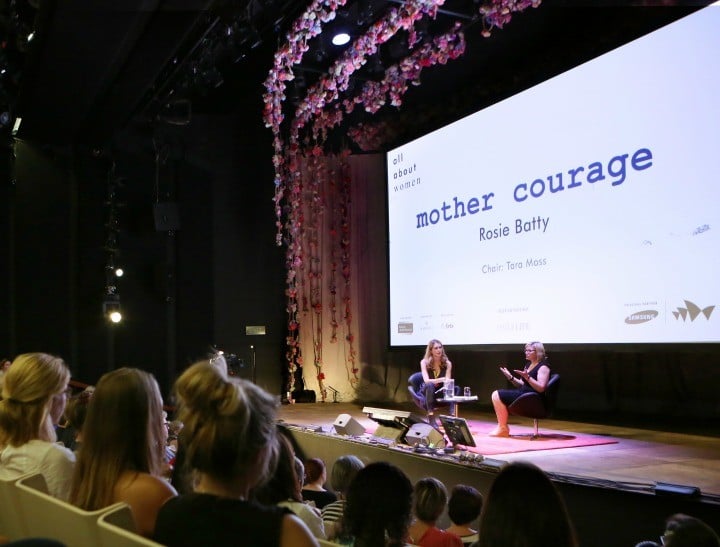
Australian of the Year Rosie Batty, who lost her son Luke Batty to family violence last year, has listed some early warning signs of abuse in a relationship.
Trigger warning: This post deals with family violence and may be triggering for some readers.
If we can empower women to recognise the signs of an abusive relationship, she may be able to escape harm. Abuse is not just physical – it can take many other damaging forms.
Speaking at the All About Women conference at the Sydney Opera House yesterday, Ms Batty spoke frankly about the need for the legal system to be overhauled to better support victims.
“Why, as women, do we have to work so hard to be believed when we talk about family violence?,” she asked.
“Our organisations who respond and should be responding with the best interests of our victims in mind … let us down because, you see, strangely, a woman can’t be believed,” she said.



Top Comments
I summoned up enough courage to put my ex into the court system. Thankfully I was believed and the court realised that my ex had some serious problems. To this day he still denies having done anything wrong but thankfully no objective onlookers believe him. The surprising thing I found was that they asked my then 9 year old whether or not he needed supervision to see his father. Why would that decision be given to a child? Why would a child who has been physically assaulted by his father be spending time with him unsupervised? That's a decision for a professional who knows enough about family violence. That professional was the one who passed the responsibility of the decision to our child. I was also disturbed by the fact that my ex-partner's Lawyer was allowed to ask me why I didn't leave earlier if he was so abusive. Why would a Magistrate even allow him to get away with asking that? How Judgemental and demeaning was that question? Fancy representing a family abuser and not understanding anything about "Battered Wife Syndrome". Further indication that we need to educate the professionals in this area so their attitudes change. Blaming of victims for not leaving must stop now. It took so much strength and courage to overcome my low self-esteem due to substantial psychological abuse over a long period of time, yet still I was being criticised for not finding that courage earlier. I'm a survivor of family violence and I grow stronger every day. I am proud of myself for finding that courage and improving my life and that of our beautiful son. I am learning Taekwondo now to help me feel stronger and more empowered. I go where I like and do whatever I wan't to do without answering to anybody trying to control my every move. I am still ever mindful of the fact that a violent man doesn't stop being violent without extensive treatment. I know because we have a child I will always need to see this man and have some form of relationship with him but I move forward hoping I have the strength to not suffer any further abuse at his hand or that of anyone else.
You have no idea. There is no help, if I had of known that by leaving the abuser I would never see my children again I would never have left.
People say there must be more to it a court wouldn't take your kids, well they did, my abusive ex convinced a consultant he was in gear for his safety and the children's, he is mentally unable to co-parent with me, I then got labled and had my children taken despite police, child safety, even the magistrates court state he is abusive and extremely worrying. I have never been in trouble with the law, clean home, good job no problems and now still in the court system no help. No money and javent seen my children in twelve months because of false allerhations, I would have stayed if I knew this would happen.
The saddest part is our children will never know how much their mother loves them because the system won't change.